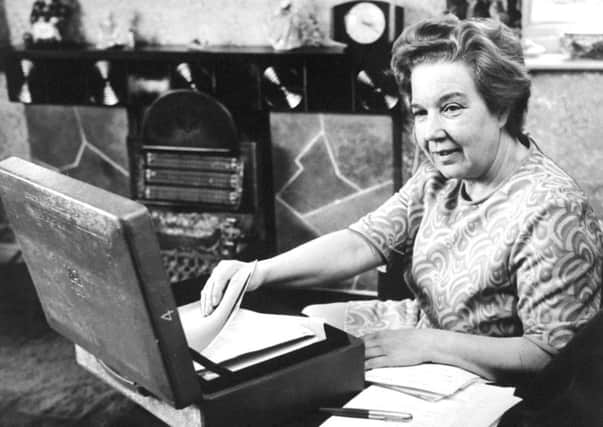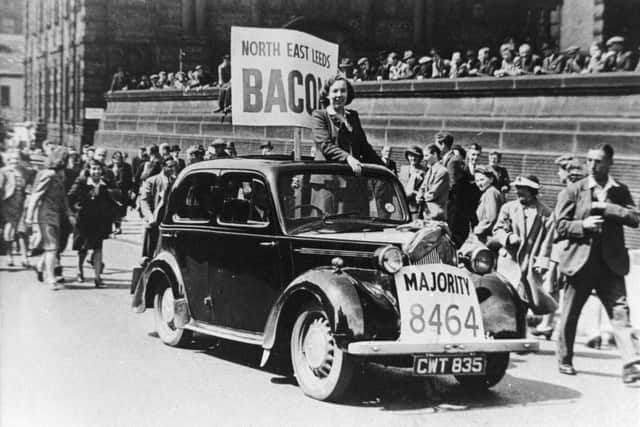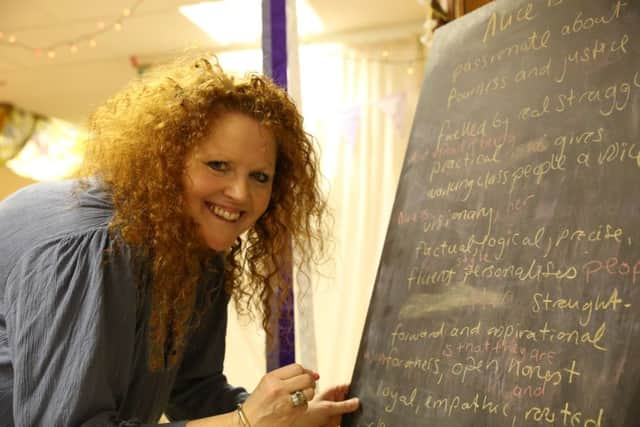Their works live on - so must their names: Wakefield's forgotten women


During the next few weeks, The Express will partner with members of the Forgotten Women of Wakefield project, to tell the stories of some of the city’s most inspirational women.
And with International Women’s Day fast approaching, and Yorkshire’s first female MP to feature heavily in this year’s Wakefield celebrations, we’ll begin with the tale of Normanton-born Alice Bacon.
Advertisement
Hide AdAdvertisement
Hide AdShe was a powerful force in opening up educational opportunities, legalising abortion, scrapping the death penalty and decriminalising homosexuality.


The waves that Alice Bacon made as the first female MP for Leeds are still strongly felt in the society we live in today.
Born in Castleford Road, Normanton, the daughter of a coal-miner, Alice grew up in a community built on comradeship.
From a young age, she saw her father, also a councillor and union rep, do what he could to take care of others.
Advertisement
Hide AdAdvertisement
Hide AdAnd it wasn’t long before she herself volunteered to help, supporting men, who turned up on the doorstep of her family home at all hours, to fill in forms explaining to the government why they needed help.


At the age of 16, she stood before Normanton Railwaymen’s Club and delivered her first political speech arguing that mineworkers deserved better. She did not know it yet, but it was her first taste of what was to come nearly two decades later. Set on becoming a teacher, Alice attended Stockwell teacher training College in South London.
In her early 30s, she took up her first post teaching 11-year-old boys in Featherstone, moving on to Queen Street Elementary in Normanton and later to Normanton modern, where she was also responsible for girls’ welfare.
From the age of 16, Alice was a member of the Labour party and in 1938, she was selected as the party’s parliamentary candidate for the Conservative Leeds North East seat. Years later, in 1945, she won the vote and became Leeds’ first female MP.
Advertisement
Hide AdAdvertisement
Hide AdServing in the Commons until 1970, Alice was a key player in some of the struggles of the times.


This included serving as Roy Jenkins’ deputy at the Home Office during the wave of social reforms of the late 1960s, such as the legalisation of homosexuality and abortion, and the abolition of the death penalty.
She was also the minister responsible for schools during the drive towards comprehensive education. In the words of Sarah Cobham, who has been researching Alice’s life for the Forgotten Women of Wakefield project, “she had a huge impact on the way the comprehensive school system opened up opportunities for both women and men.
“She also pushed through the private bills which made abortion legal and was at the forefront of changing perceptions about homosexuality for the better”.
Advertisement
Hide AdAdvertisement
Hide AdIn 1953, Alice was awarded a CBE in the Coronation Honours List. And as she retired, she was awarded life peerage in the then Prime Minister Harold Wilson’s resignation honours list in 1970.


l Alice Bacon’s story has been put together with the help of members of the Forgotten Women of Wakefield group, particularly Steve Williams, Joanne Broadhead and Claire Crossdale.
The aim of the Forgotten Women of Wakefield project is to research, share and bring to life the stories of three women from Wakefield’s past, who have had a positive impact on the city and the lives of its people today.
The group hopes to make people aware of the women’s lasting legacies and give a voice to their contributions in the 100th anniversary year of the Representation of the People Act 2018, which gave the first women - those aged over 30 - the right to vote.
Advertisement
Hide AdAdvertisement
Hide AdSarah Cobham, who is taking the lead on the project, said: “There’s a huge inequality with recognising women who have shaped Wakefield.
“Through this project, we will share the stories of women from our past and celebrate their achievements and learn from them.”